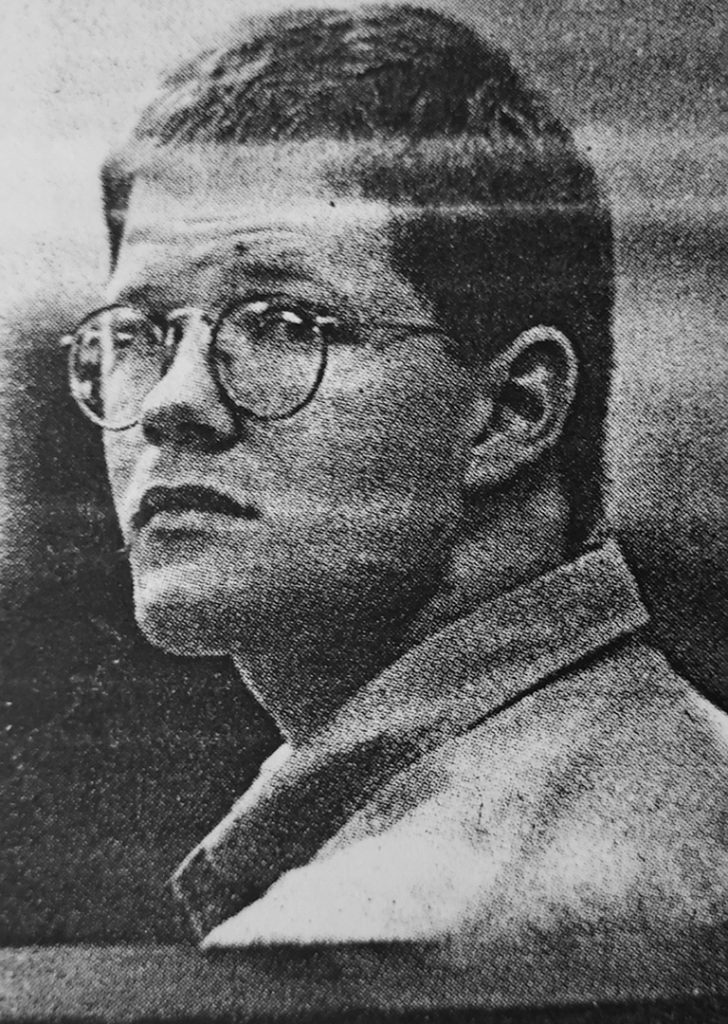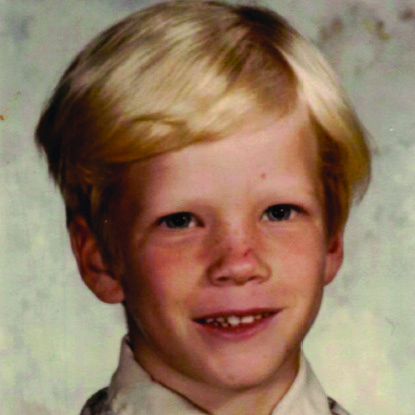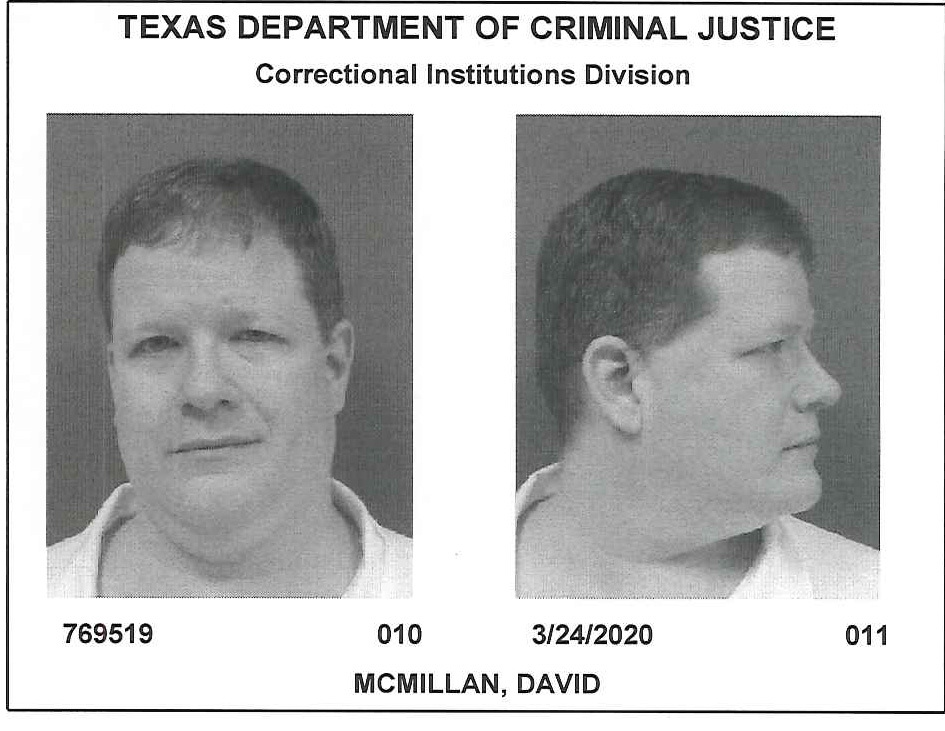Behind the walls of the C.T. Terrell Unit in Rosharon, Texas is a man the correctional system knows only by a number.
But David McMillan wants people to recognize him as a human being no matter the actions of his past or his current circumstances.

In 1993, the 17-year-old former Flint resident received a life sentence. Under Texas law he must serve at least three decades before becoming eligible for parole. Two co-defendants in the case — deemed responsible for Nicholas West’s death — were executed for their part in the crime.
“It’s going to be a long 30 years,” his attorney told reporters after McMillan’s sentence was returned.
That 30 years is up in less than 16 months — raising the question of whether McMillan deserves parole consideration. His situation is of particular interest considering a movement known as Second Look that supports reconsidering lengthy sentences given offenders who were 17 or younger when they committed the crime.
McMillan responded to questions posed by The Tyler Loop through his association with Deanna Luprete, executive director of The Epicenter Initiative.
His answers have been edited for grammar and spelling.
The Tyler Loop: What were your thoughts, emotions, fears and experiences during your first three months in a state prison setting?
McMillan: As my first offense when I was told I was on the chain for the prison, I felt a lot of fear and apprehension. The prison officers who came to pick up prisoners did not make it any better with their uncaring attitude and rough handling.
When you get to an intake unit, then it is immediately drilled into your head that you are no longer a person and rather that you are a number. You have to repeat it at every station and if you give your name you are told that they are not worried about that. The intake units are all about setting the patterns that you will experience in the institutional units. The counts, orders, rules and such.
My first ID (Institutional Division) unit was the C.T. Terrell unit which is now called the Polunsky unit located in Livingston, Texas. I was the only person sent there because of my crime and time. When I got off the bus and the chains and cuffs were removed, I was told to wait. When the officer went inside, an offender who was SSI approached me and asked me if I was “down” or if I wanted to be his b***h. Then he swung on me and we had a fight while the guard in the picket watched. Once we seperated, he walked away. The first officer came out and led me to medical and classification. Then, I was assigned a job and housing. No questions were ever asked about the obvious marks of a fight.
I entered the housing area I was assigned to and after I put my mattress down, I was told by my cellie to fall out of the dayroom. Once there I was informed that I would have to fight three offenders. One of each Black, Hispanic and white. Which I did. Once that was done, I was asked if I was affiliated with any STG (Security Threat Group), which I wasn’t, so then anyone who felt they could break me was allowed to fight me. I had four more fights, the last of which broke my jaw. This was all within the first six hours of my stepping foot on an ID unit. I spent the night in the cell but when my face swelled up, I had to go to the infirmary and then to the hospital to have my jaw wired shut.
After spending eight weeks in the infirmary eating meals through a straw, I was placed back into population and was told by an inmate that I was gonna be his b***h. I was beaten but refused to give up and suffered part of my face getting caved in and still have bone fragments around my eye to this day. Once I was out of the infirmary, I went through several riots before I was shipped from that unit to another.
Why did this happen? Because, it was something all young guys went through. We were all considered weak and easy prey, you never had a moment’s peace and could not trust anyone, even other whites because they would sell you out to benefit themselves. It became normal and you learned to keep your emotions and feelings bottled up so no one could use them against you, and lived as best as you could. The worst was even when you went to visit, you could not show emotions with your family or loved ones. So, even when they cried and hurt because of the signs of your fights, you could not be honest with them.

The Tyler Loop: If you, as a 45-year-old man could talk to your 17-year-old self, what would you say?
McMillan’s answer to this question was asked and answered in The Second Look Book and Word To My Younger Self, collections of stories from people who were sentenced as teenagers to adult Texas prison. The book was a cooperative effort between The Texas Criminal Justice Coalition, Epicenter and the Lone Star Justice Alliance.
The Tyler Loop: Are you the same person you were in 1993? How and why have you changed?
McMillan: No! Who I was in ‘93 was a young, confused boy who had no idea who he was in life. He was constantly told he would never be good enough, that he would never amount to anything, that he was worthless, retarded, trash. So, he didn’t try anymore, he became what everyone expected him to be. That way at least he would not disappoint anyone anymore. He wanted so badly to fit in anywhere with someone that when he was shown acceptance, he did not see how he was being used but would do anything to keep that acceptance.
Upon coming to prison, I saw the end result of that person in others around me. How they were preyed upon and used. And I had to really ask myself if that was who I really wanted to be. It wasn’t! I began to find out the truth about myself and the lies I had been told. When I put my all into something I wasn’t just good enough, I excelled. Applying myself led me to get better jobs and develop trust in myself. I wasn’t retarded. I am dyslexic. Once I understood that, I learned to correct it and began to read and learn, and I was hungry for learning. God doesn’t make trash, he makes people. Sometimes we become broken, confused and lost. It makes us human but never trash.
It was really reading my Bible that led me to the greatest change, that and faith. You see, when you come to understand who you are in God’s eyes, then you realize that who the world says you are is all lies and false accusations. Who I am is a direct reflection of who God says I am, and I live by that even when it puts me in direct opposition to how prison says I should live.

McMillan: I have taken many classes over the years to improve my cognitive abilities and my reasoning. I have taken classes that have taught me to look at choices: not just how they affect me but also how they affect those around me and those who rely on me. Every job I have had, I do my best to learn all I can about it and to perform it to the best of my ability, even talking to others who have done the job to learn from them. Unable to take college because I can’t afford it, I have made my jobs my schools and have utilized the library and chaplaincy to learn more.
The Tyler Loop: Do you believe you can become a productive member of society if you are granted parole? Why?
McMillan: Yes, I have learned many job skills and polished them with repeated use. I would be a beneficial asset to any company. I also have learned to become a beneficial member in here by becoming part of the ministry team. I live my daily life while following the rules in prison. I do not break them or bend them or interpret them in a way favorable to me. I have developed a strong work ethic and a willingness to bend as the job demands it. I will help out anyone in need without expecting anything back, all things that society asks of everyone.
The Tyler Loop: If you were asked to speak to a group of high school dropouts, what would you tell them?
McMillan: In the words of Doc from “Back to the Future,” “Your future hasn’t been written yet. No one’s has. Our future is whatever you make it. So, make it a good one.” As of this day, you have a decision as to what your life is going to be like and who you will be. If you live your life to be who everyone else thinks you are, you will have a miserable life, because it will never be yours. Understand that any decision made hastily can in seconds destroy your life and lives of others. One action can hold you captive for the rest of your life in a prison of despair and regret. The words you speak can be the difference of life and death to someone. They can tear someone down and shatter their life or you can use them to heal someone, to bring them out of despair and a life of shame. They are the most powerful weapon you own or the greatest medicine. At times in your life, you are going to have to prune your life. Things, dreams and people you will have to remove or graft into your life. Will it be painful? Yes. But, it will be needful. The longer you wait to prune them, the more painful for you and them.
I would encourage each of you to write a series of lists. The first being your lines in the sand. Things you will not cross and allow no one to cross. Next, a list of your morals and beliefs. These will help you live your life. By knowing what you believe and your morals, you will have a guideline until they become so ingrained that you will not have to look at it.
Lastly, write your goals and dreams. These will give you direction as you start out your life as young adults. After you list your goals, then break it down into smaller goals that will lead you to your full goal. This will allow you to see your progress and you will not consider the steps failures, because the world will tell you that if you don’t reach your goal quickly, then you have failed.
I would like for you to all understand that over the course of your life so far, you have been told lies and truth. Anything that has told you that you have to have the right clothes, shoes, makeup, house, cars or lifestyle to be happy and have a full life is a lie, and it will continue to be. Anyone who tells you the sky is the limit is lying. You have no limit other than what you place there yourself. Anyone who tells you that you can’t succeed, live your dreams or be happy without the biggest and best are lying, and are putting their own broken dreams as stumbling blocks in your path of life. Only you, each and everyone of you, know what you can live without and what you are willing to live with. Don’t let others make those decisions for you.
Take a good look at those people who you consider to be friends. Anyone who is breaking or bending the rules and encouraging you to do likewise are not your friends. Anyone who is always taking without giving anything in return, who you are always making compromises for to do their things, are not your friends. Anyone who always makes you look to them for your affirmation of your worth is not your friend. Your friend is the one who always pulls you up, who listens to your hurts and pain and does not judge you; who helps to pull you up when you fall and will sit in the mud with you to share the load of life. Of all the things in your life, who you call friend is one of the most important.
The Tyler Loop: Is there anything else you want to address that hasn’t come up yet? What do you want people to understand?
McMillan: People, even those of us who committed horrible crimes, are still people. We live, we grow, we change. Not one of us who have come to prison as a young person is who we were. It is easy to take a frozen moment of our lives and judge the rest of our life by it, because it is what we do with history. But, no one lived the lives we did up to that point, no one knew our thoughts, experiences, home lives or struggles. What all the world saw was the fruit of our lives to that point.
After that, you did not see the remorse, the pain our families and us have gone through over the course of years. The knowledge that our families do each day of this prison sentence with us. How we sat in here as our families have grown old, and some have passed. We have no closure, we don’t get to say goodbye, go to funerals or be comforted with our families. At most we get a two hour visit and then must part.
Anyone who has done time is a different person. This place is a meeting mass of humanity, and some of them are the worst of the worst. If you come to prison and make a conscious decision to be a better person, then this place is very similar to a polishing tumbler. You place a rock into its sand packed interior and turn it on. As it tumbles it removes the outer layer of rock until you have a beautiful polished stone left. In it, you will see all the bad in you, and you will have the chance to remove it layer by layer until all that is left is a beautiful polished person of unknown value until they are released to show their value.
Love what you're seeing in our posts? Help power our local, nonprofit journalism platform — from in-depth reads, to freelance training, to COVID Stories videos, to intimate portraits of East Texans through storytelling.
Our readers have told us they want to better understand this place we all call home, from Tyler's north-south divide to our city's changing demographics. What systemic issues need attention? What are are greatest concerns and hopes? What matters most to Tylerites and East Texans?
Help us create more informed, more connected, more engaged Tyler. Help us continue providing no paywall, free access posts. Become a member today. Your $15/month contribution drives our work.







